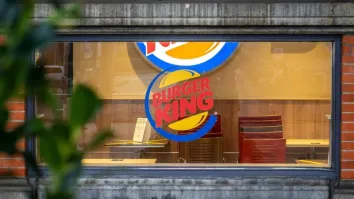
What's driving the brewing coffee war in China?
Changes in consumer trends are boosting coffee sales in the country.
Recent activities of the major coffee chains in China have led analysts to think that there is a coffee war brewing up to take on Starbucks, who’s still on top in the global coffee market scene.
Earlier in September, Coca-Cola made global headlines after acquired UK-based Costa Coffee for US$5.1 billion. The coffee brand also previously revealed its plans to open 1,200 stores in China by 2022.
Last August, Alibaba partnered with Starbucks to allow the coffee chain to have delivery services. Around 2,000 stores is said to have access to the Ele.me delivery platform by the end of 2018.
Luckin Coffee also announced its partnership with multinational investment holding conglomerate Tencent Holdings to fuel its expansion projects in the country. The coffee chain has reached a valuation of USD$1 billion last July, less than a year since it first entered the coffee market.
The rising competition between these coffee giants in China is due to the growing consumer demand for coffee.
According to recent analysis from Fitch Solutions, coffee sales in the country is predicted to grow to 15.8% in 2018. From then on until 2022, it will continue to escalate by an average of 13.1% annually.

Coffee Sales Growth And Total Value (Photo credit: National Statistics, Fitch Solutions)
This is backed by the increasing working millennial population that will be totalled to 418.8 million this year. Increasing income will also be supporting consumer spending as Fitch mentioned that the middle-income segment will account for 43% of households in 2018 and will continue to rise by 65% in 2022.
Fitch also added that these demands will be driven by booming consumer trends in China.
There is said to be a change in consumer diets whereas more people are looking for non-traditional options, such as choosing coffee over tea which is a traditional choice among hot beverages in China.
Consumer knowledge regarding coffee will also push the coffee market to move to the premium segment where customers would be more willing to pay more for premium, artisanal and bespoke coffee.
Focusing on online coffee delivery
Fitch reveals that there is a rising demand for convenience as well. Coffee delivery is becoming a booming trend, causing coffee brands to create delivery services for their customers.
“With a growing focus on online-to-offline retail, coffee chains in China will need to focus on online coffee delivery to homes and offices,” Fitch suggested.
“Coffee Box already delivers via Meituan Dianping , Luckin via SF Express and soon Starbucks too will be able to deliver coffee with its partnership with Alibaba's Ele.me.”
Moving to the ready-to-drink coffee segment is also becoming an option for beverage companies as there are more time-poor consumers turning to packaged coffee.
“Coffee chains will need to leverage on the vast distribution network of mass grocery retail chains like Walmart, Tesco, Sun Art Retail, China Resource Holding and Auchan to expand into this sector.”























